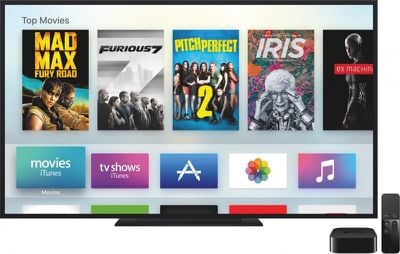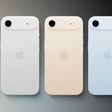FCC Proposal Aims to Make Subscription TV Available on Any Set-Top Box
United States Federal Communications Commission chairman Tom Wheeler introduced a proposal [PDF] this afternoon that would de-couple cable subscriptions from cable set-top boxes. Under the proposal, cable and satellite subscribers would be able to access and watch cable content on any set-top box of their choosing, including the Apple TV, rather than being limited to the set-top box provided by the cable company.
While allowing customers to access the full content provided with a cable subscription through the Apple TV is not quite the cord-cutting solution Apple has been aiming for, it is a step towards a more open relationship between technology companies and cable companies. Such a system would not give Apple control over content, but it would allow Apple to build an interface for that content.

The new rules would create a framework for providing device manufacturers, software developers and others the information they need to introduce innovative new technologies, while at the same time maintaining strong security, copyright and consumer protections. Nothing in this proposal changes a company's ability to package and price its programming to its subscribers, or requires consumers to purchase new boxes.
As The Verge points out, the FCC faces a tough battle attempting to get this proposal passed and implemented due to resistance from cable companies who want to have control over content and how and where it's displayed.
A similar plan for the CableCard, which allows companies like TIVO to offer cable content, has largely failed because of its complexity and because many cable providers refused to make the process simple enough to be widely adopted. Cable companies are against the proposal because of the loss of control and the loss of the revenue from rented cable set-top boxes, and more than 40 telecommunications groups have already formed a coalition to oppose the FCC's plan.
Cable companies argue it would give technology companies unfair access to customer data and potentially disrupt deals that have been established for channel positioning, giving some programmers better spots in the lineup for higher payments.
Having continually failed to reach deals with content providers and cable companies, Apple has settled on focusing on its tvOS operating system and the App Store available on the fourth-generation Apple TV. The tvOS App Store model allows for cable companies to create apps and deliver cable content to consumers on the Apple TV, but it's a fragmented system that's less than ideal because it still doesn't give Apple full control over the interface. The FCC's proposal has the potential to greatly improve the cable watching experience on the Apple TV, at least for cable subscribers.
Popular Stories
Since the iPhone X in 2017, all of Apple's highest-end iPhone models have featured either stainless steel or titanium frames, but it has now been rumored that this design decision will be coming to an end with the iPhone 17 Pro models later this year.
In a post on Chinese social media platform Weibo today, the account Instant Digital said that the iPhone 17 Pro models will have an aluminum...
Apple is continuing to refine and update iOS 26, and beta three features smaller changes than we saw in beta 2, plus further tweaks to the Liquid Glass design. Apple is gearing up for the next phase of beta testing, and the company has promised that a public beta is set to come out in July.
Transparency
In some apps like Apple Music, Podcasts, and the App Store, Apple has toned down the...
In select U.S. states, residents can add their driver's license or state ID to the Wallet app on the iPhone and Apple Watch, providing a convenient and contactless way to display proof of identity or age at select airports and businesses, and in select apps.
Unfortunately, this feature continues to roll out very slowly since it was announced in 2021, with only nine U.S. states, Puerto Rico,...
Apple will launch its new iPhone 17 series in two months, and the iPhone 17 Pro models are expected to get a new design for the rear casing and the camera area. But more significant changes to the lineup are not expected until next year, when the iPhone 18 models arrive.
If you're thinking of trading in your iPhone for this year's latest, consider the following features rumored to be coming...
Apple is expanding the ability to add an Apple Account Card to the Wallet app to more countries, according to backend Apple Pay changes.
With iOS 15.5, Apple updated the Wallet app to allow users to add an Apple Account Card, which displays the Apple credit balance associated with an Apple ID.
If you receive an Apple gift card, for example, it is added to an Apple Account that is also...
Three out of four iPhone 17 models will feature more RAM than the equivalent iPhone 16 models, according to a new leak that aligns with previous rumors.
The all-new iPhone 17 Air, the iPhone 17 Pro, and the iPhone 17 Pro Max will each be equipped with 12GB of RAM, according to Fixed Focus Digital, an account with more than two million followers on Chinese social media platform Weibo. The...
Apple should unveil the iPhone 17 series in September, and there might be one bigger difference between the Pro and Pro Max models this year.
As always, the Pro Max model will be larger than the Pro model:iPhone 17 Pro: 6.3-inch display
iPhone 17 Pro Max: 6.9-inch displayGiven the Pro Max is physically larger than the Pro, it has more internal space, allowing for a larger battery and...
The calendar has turned to July, meaning that 2025 is now more than half over. And while the summer months are often quiet for Apple, the company still has more than a dozen products coming later this year, according to rumors.
Below, we have outlined at least 15 new Apple products that are expected to launch later this year, along with key rumored features for each.
iPhone 17 Series
iPho...





















